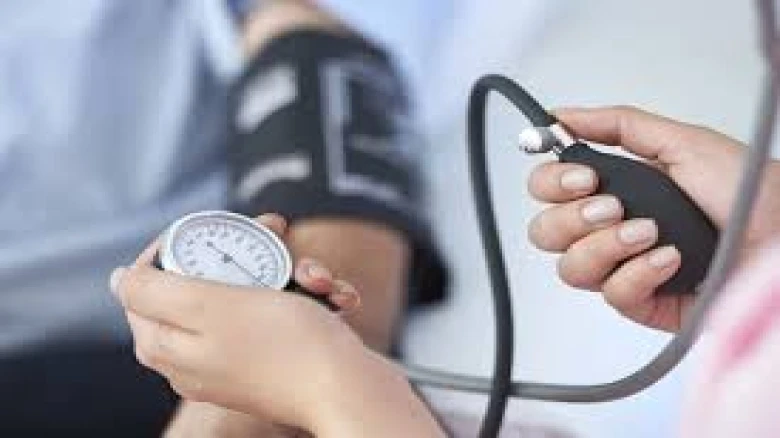Increased body temperatures and humidity can dilate blood arteries, resulting in increased blood flow and high blood pressure.
Digital Desk: Many people suffer from high blood pressure during the summer months for a variety of reasons. Maintaining cardiovascular health requires knowing why blood pressure increases in the summer and putting control measures in place. High blood pressure, or hypertension, increases the chance of developing further illnesses. Similar to how arteries and blood vessels narrow in the winter, people with high blood pressure need to be aware of the summer's unique set of challenges.
WHY BP RISES IN HOT WEATHER?
Increased body temperatures and humidity can dilate blood arteries, resulting in increased blood flow and high blood pressure. In an attempt to cool down, the body's natural reaction to heat is to boost blood circulation, which can momentarily elevate blood pressure.
In addition, blood volume reduces and blood concentration increases when the body is dehydrated, which raises blood pressure. Summertime exercise and outdoor activities are popular, and they might momentarily raise blood pressure. Frequent physical activity improves cardiovascular health overall, but in hot conditions, brief bursts of movement or intensive exercise might temporarily raise blood pressure.
TIPS FOR HIGH BLOOD PRESSURE MANAGEMENT IN SUMMER?
1. Maintain Hydration: To be well hydrated, consume a lot of water and other liquids. Sufficient fluid intake aids in avoiding dehydration, maintains a steady blood volume, and upholds appropriate blood pressure. As they can exacerbate dehydration, limit or stay away from alcohol and sugar-filled beverages.
2. Limit Salt Intake: Choose healthier foods and be conscious of how much salt you consume. Steer clear of packaged and processed foods that are heavy in salt. Use herbs and spices to season food instead of salt and concentrate on eating fresh, healthy foods.
3. Wear Breathable Clothes: To assist regulate your body temperature, look for shade, turn on fans or air conditioning, and dress in light, breathable materials. Steer clear of prolonged exposure to intense heat and make every effort to remain in cooler places.
4. Stress Management: High blood pressure is a possible result of stress. To assist lower stress levels, incorporate stress-reduction strategies including deep breathing exercises, yoga, meditation, or partaking in enjoyable hobbies.
5. Exercise Wisely: Get regular exercise, but pay attention to the length and intensity of your sessions. Try to work out in the morning or evening when it's cooler outside. When exercising, drink plenty of water and pay attention to your body's needs. You may even want to shorten or intensify your activities.
Remember that you should always see a doctor if you have pre-existing hypertension or any other medical concerns.

Leave A Comment